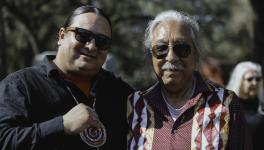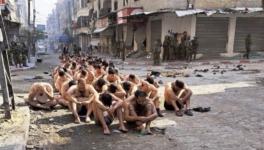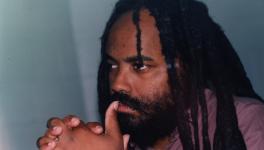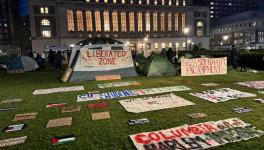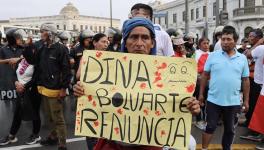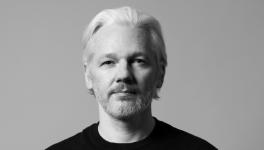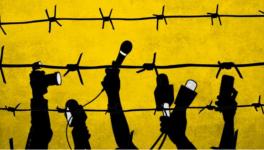José Murillo, Latest Victim of Colombian State Persecution
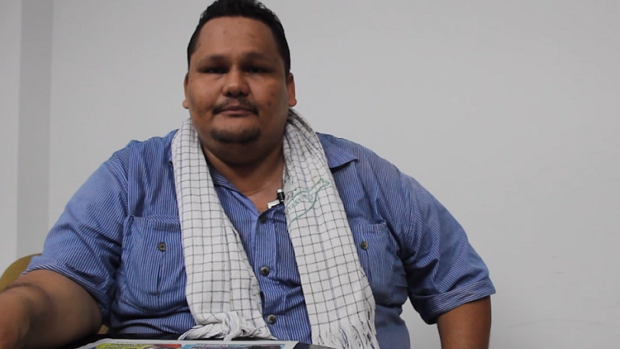
José Murillo was arrested on December 7 by agents of the National Police.
José Vicente Murillo Tobo was arrested in the city of Saravena in the department of Arauca on Saturday December 7 at 11 am by agents of the National Police. Prior to his arrest, the nationally and internationally recognized social leader and human rights defender had denounced on repeated occasions the harassment, threats, and persecution he faced by the Colombian state and from the paramilitary structure the “Gaitanista Self-Defense Forces”.
José Murillo is a leader and member of the Political Movement of Social and Popular Masses of the Center East of Colombia (MPMSPCOC). He serves as the movement’s spokesperson in the national platform Congreso de los Pueblos (The People’s Congress) and is also a spokesperson of the Agrarian, Peasant, Ethnic and Popular Summit.
Following his arrest on Saturday, Murillo was transferred to the Reveiz Pizarro Army Battalion and then to a penitentiary center in Arauca, the departmental capital. He has been charged with rebellion, conspiracy to commit a grave crime, kidnapping and obstruction of public roads.
According to human rights defender and spokesperson of MPMSPCOC, Sonia López, “The arrest of social leader José Murillo Tobo, in the midst of the National Strike is an act of retaliation [by the State] which seeks to silence the voice of the communities that in the Center East of Colombia have demanded better conditions of life.”
The regional media outlet Trochando Sin Fronteras declared that “Criminalization, exile or death are the only options for the social leaders of the Center East region of Colombia who oppose the policies of the Colombian government.” In 2018 social leaders Julián Gil, José Hermes Burgos and Alix Miriam Aguilar, also members of MPMSPCOC, were arrested over similar trumped-up charges and have since been held in penitentiary centers as a preventative measure. The state prosecutors investigating them have yet to produce concrete evidence to justify their arrests and detention.
In the communique denouncing Murillo’s arrest, the Human Rights Foundation Joel Sierra highlighted that the prosecutor that requested the detention of José Murillo is part of the entity called the ‘Structure of Support’ which they claim is “financed by transnational corporations” and allege that the prosecutors in the Structure “have dedicated themselves to implement the policy of criminalization of social protest and the persecution of its leaders.”
According to the website of the Attorney General of Colombia, the Structures of Support were created through an agreement between the National Police, the state oil company Ecopetrol and the Rotating Fund of the National Police in 2001 with the objective to “advance investigations on the crimes of seizing hydrocarbons and terrorist attacks against petroleum and energy infrastructure.” The Structures of Support entities exist in 10 cities of Colombia, which are home to mineral and energy resources and are zones with high levels of social conflict against extractive projects.
The participation of the structure of support in the judicial persecution of Murillo is significant, especially considering that in his work as a social leader in the region, he participated in diverse instances of negotiation and dialogue with companies and state actors with regards to conflicts over extractive projects in the region.
“Nor prison nor death will diminish our commitment to life”
Due to the constant threats and intimidation he faced, Murillo along with hundreds of other leaders in Colombia participated in the “Humanitarian Refugee Convergence” an action organized from April 28-May 2 in 2019 to raise awareness to the grave human rights crisis facing the social movements in Colombia. During the action, Murillo and other leaders presented reports about the persecution they faced to government institutions and embassies, and also willingly presented themselves to the Attorney General’s Office in order to verify if the State had opened up investigations or cases on them. In the case of Murillo, the Attorney General confirmed that they did not.
During the Humanitarian Refugee Convergence a public hearing was held in the National Congress in order for social leaders to explain to lawmakers and the public about the severity of the human rights crisis in Colombia.
In this hearing, Murillo declared “With me, the Colombian government has taken a decision, the decision to incarcerate me or kill me, and in response to this, here in the Congress of the Republic I also have to respond to this decision, and I say that they will have to incarcerate me or kill me because I will not go into exile, I will not displace myself, and I will continue alongside my people…Nor prison nor death will diminish our commitment to life, the communities and the territory.”
Hundreds of thousands of people across Colombia from social movements, trade unions, sector-based organizations, and community groups have been mobilizing since November 21 against the anti-people, neoliberal and repressive regime of President Iván Duque. Despite the heavy handed response by Colombian security forces as well as the threatening and stigmatizing declarations given by state authorities in response to the protests, the people of Colombia have maintained historically high levels of mobilization across the entire national territory.
Get the latest reports & analysis with people's perspective on Protests, movements & deep analytical videos, discussions of the current affairs in your Telegram app. Subscribe to NewsClick's Telegram channel & get Real-Time updates on stories, as they get published on our website.










